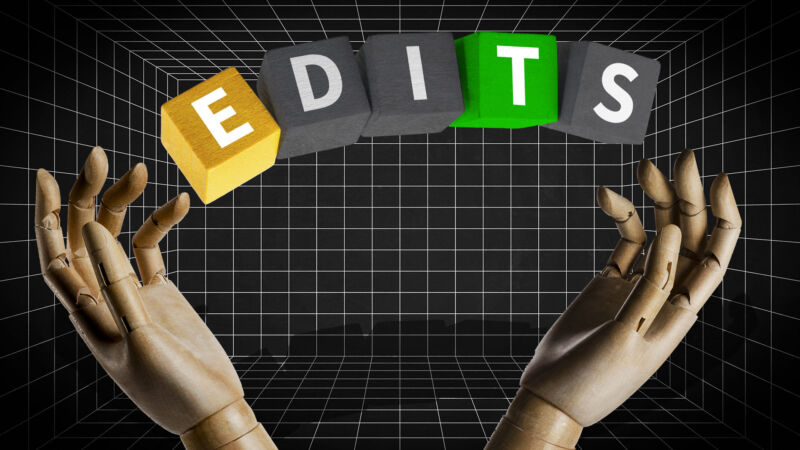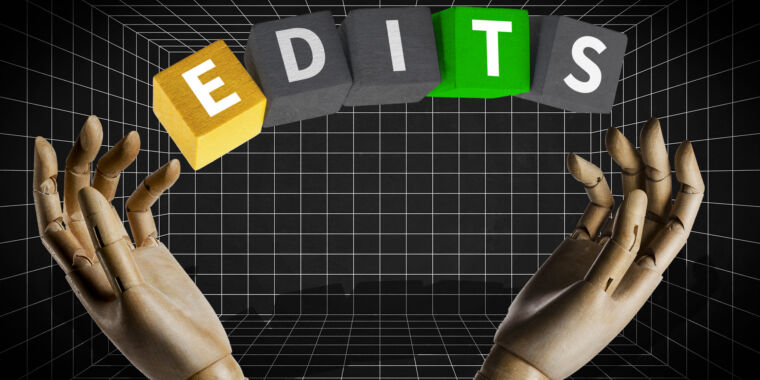
Aurich Lawson | Getty Images
At first glance, there are few word games that seem to require less active editing than wordle. After all, the daily wordle puzzle comes down to just a single five letter word. Picking that word every day doesn’t really require the skill or artistry of, say, doing an entire crossword puzzle or designing a more algorithmic game like keywords.
Despite this, The New York Times announced on Monday that “wordle finally has an editor.” Which leads to an obvious follow-up question: wordle editor actually do all day?
The answer, it turns out, is more than you might think. In a conversation with Ars Technica, new name wordle editor Tracy Bennett said that choosing the daily wordle word deals with balancing difficulty, variety and potential player frustration while keeping an eye out for derogatory hidden meanings and player complaints.
A word curator
To begin with, Bennett clarified that “wordle editor” is not in itself a full-time job. Bennet has been an associate puzzle editor at the Times since 2020 and continues to fill that role for most of her professional time. wordle currently takes an average of 30 minutes to an hour a day, Bennett said, a “boot speed” that will help “a [word] list for the year ahead.”
Working from Josh Wardle’s original list of about 2,300 five-letter words (previously randomly assigned to different days), Bennett said she starts by just “looking at the list and seeing things jump out…I’m still choosing words in a sort of random way, but also in a well-informed way. … I’d call it intuitive, but it’s really based on years of experience working with words from other puzzles.”
Unlike a completely random sorting algorithm, Bennett said she focuses on being sure of a week wordle solutions are “lexically and semantically varied. … I don’t want a week’s worth of nouns, and I don’t want a week’s worth of words that start with an A, that sort of thing.”

Bennett said her process could involve scheduling a week’s worth of words into a one-day session, then spending the next four or five days “examining the etymologies and history of those words as carefully as possible.” That kind of in-depth research is key, Bennett said, to “see if there are secondary meanings that are distasteful, or potentially offensive or hurtful.”
“Even if it’s defensible as a legitimate word, aside from that secondary meaning, we have so many words to choose from that there’s no need to take that chance and pick that word,” she continued. “Even if I assume I know what it means and there are no secondary meanings, I’m still looking.”
Bennett said there were two recent ones: wordle fixes (which were running before she officially took over on Nov. 7) that received some complaints from users for potentially offensive hidden meanings. She wouldn’t specify those words to Ars because “they’re not obvious to everyone as derogatory terms, but if you look them up, you’ll see it’s there and it’s findable. And if it is, we’re probably going to just don’t do this.”
Then there are words that are not offensive on their own, but can still come across as inappropriate next to the news of the day. Such was the case in May when “FETUS” was randomly set to run as the daily wordle at the time news of the Supreme Court’s abortion-related Dobbs decision leaked.
Bennett said the NYT puzzle team had “mixed opinions” on what to do about that coincidence,” but it was eventually decided [it] can be… disturbing or feel like it was chosen on purpose, or be suspicious in some way. … There’s an element of planning the words that’s also an editorial matter, so I’d like to think about that, if the timing is right.”

